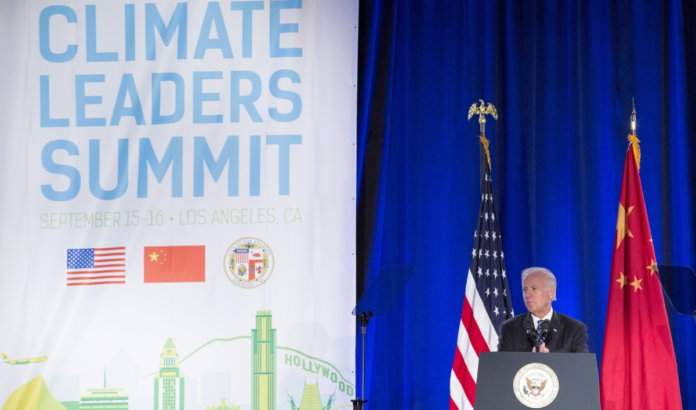
By Philip Baillargeon
One of the unique characteristics is the executive order, an autonomous action by the president that requires no congressional approval. Executive orders and agreements are a complex beast in the American political world; while powerful in making decisive action that is impossible in the sluggish, uncompromising, and polarized Congress, executive orders can easily be overturned by the next administration. Former President Trump is learning firsthand the dangers of passing a majority of his agenda through executive orders, as Trump’s ‘America First’ agenda has been undone quickly and efficiently by the newly elected President Biden, reinstating many landmark initiatives of the Obama Administration. Here are some of the highlights of Biden’s own slew of foreign policy executive orders and some prospective digressions from his predecessor that will require congressional approval.
The Paris Climate Accords: On his very first day in office, President Biden recommitted the United States to the Paris Climate Accords, which were an attempt to set worldwide emissions standards to slow climate change and unite leaders around the globe to tackle one of the most pressing threats to life on Earth. President Biden hopes to formulate a plan with Congress to further strengthen emissions standards within the U.S. to levels that would make the entire country have net-zero emissions by 2050 (perhaps earlier). The United States will officially reenter the agreement in March, as there is a one month waiting period to rejoin.
The World Health Organization: Shortly after announcing his intent to recommit to the Paris Climate Accords, on his first day in office, President Biden also signed an executive order to rejoin the World Health Organization, or WHO. Former President Trump attempted to cut funding for the WHO amidst the pandemic over claims that they didn’t punish China enough for the rapid spread of COVID-19, but the actual withdrawal would not have taken place until July of this year. President Biden has reaffirmed that the United States will pay its dues to the international organization and they will be working with several other countries on the COVAX initiative, which hopes to distribute 2 billion vaccines worldwide by the end of the year.
The Iran Nuclear Deal (JCPOA): The Iran Nuclear Deal, or the Joint Comprehensive Plan of Action (JCPOA), is a bit more complicated. The Trump Administration blew up the deal (no pun intended) in 2018, ratcheting up tensions that led to increased sanctions on Iran and higher levels of uranium enrichment activity that have had destabilizing effects on the region. President Biden is given the autonomy to modify sanctions, pledging to reduce them to levels under the JCPOA if Iran complies with the deal’s limits on nuclear activity, which Iranian officials have seemed receptive to. Renegotiation of the deal would require Congress’s signoff.
UN Human Rights Council: Yes, President Trump pulled the United States out of the United Nations’ Human Rights Council, supposedly over anti-Israel sentiment and the objection to the membership of China and Venezuela. The Biden Administration would have to nominate a delegate to be elected to the council within the United Nations, and most experts expect President Biden will do so when elections are held in three months.
There are other various arms and trade treaties, including the Trans Pacific Partnership (TPP), the New START arms reduction deal with Russia, the Treaty on Open Skies, and more, that would require Senate approval to ratify. Since the pandemic has taken precedence over many of these specific foreign policy matters, President Biden has not indicated that he will pursue the ratification of any of these agreements in the near future. President Biden’s immediate agenda is clear: honor our past agreements, save our environment, and work as a worldwide unit to combat this pandemic.
